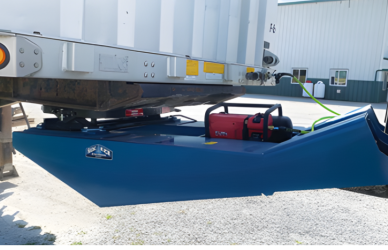Long hauls can be both a blessing and a challenge. The open road offers a sense of freedom and adventure, but the lengthy hours behind the wheel can also lead to fatigue and boredom. Staying focused and engaged is crucial for your safety and well-being. Here’s a guide packed with tips to help you stay alert, entertained, and productive on your long hauls.
- Plan Your Route and Schedule
Why It’s Important:
Having a well-planned route and schedule can reduce stress and help you manage your time more effectively. Knowing where you’ll stop for breaks, meals, and rest can keep you on track and prevent last-minute rushes.
Tips:
- Map It Out: Use GPS and mapping apps to plan your route in advance.
- Schedule Breaks: Plan regular breaks to stretch, eat, and rest. The 10-hour rule for driving helps, but personal adjustments based on your needs are crucial.
- Weather Check: Monitor weather conditions and adjust your plans as needed to avoid delays.
- Stay Physically Comfortable
Why It’s Important:
Physical discomfort can lead to fatigue and distraction. Ensuring your driving environment is comfortable can help you maintain focus.
Tips:
- Ergonomic Seat Adjustments: Make sure your seat is properly adjusted to support your back and reduce strain.
- Temperature Control: Keep your cab at a comfortable temperature.
- Healthy Posture: Maintain good posture to prevent aches and pains.
- Healthy Eating and Hydration
Why It’s Important:
The food and drinks you consume can significantly impact your energy levels and concentration. Healthy eating habits and staying hydrated are essential for maintaining focus.
Tips:
- Healthy Snacks: Pack nutritious snacks like fruits, nuts, and granola bars to keep your energy up.
- Regular Meals: Eat balanced meals with a good mix of protein, carbohydrates, and healthy fats.
- Hydration: Drink plenty of water. Avoid excessive caffeine and sugary drinks that can lead to crashes.
- Mental Engagement
Why It’s Important:
Keeping your mind engaged prevents boredom and helps you stay alert. Engaging activities can make the time pass more quickly and pleasantly.
Tips:
- Audiobooks and Podcasts: Choose engaging audiobooks or podcasts that interest you. Whether it’s a thrilling mystery, a fascinating documentary, or a comedy show, audio content can keep your mind active.
- Music Playlists: Create playlists of your favorite songs or explore new genres to keep things fresh.
- Learn Something New: Use educational apps or language learning programs to make your driving time productive.
- Physical Activity
Why It’s Important:
Regular physical activity helps combat fatigue, improves mood, and boosts overall health. Incorporating exercise into your routine can keep you more alert and energized.
Tips:
- Stretching: Do simple stretching exercises during breaks to keep your muscles loose and blood flowing.
- Walking: Take short walks during your breaks to get some fresh air and movement.
- Portable Workout Gear: Consider carrying lightweight exercise equipment like resistance bands for quick workouts.
- Sleep and Rest
Why It’s Important:
Adequate sleep is crucial for maintaining focus and overall health. Being well-rested ensures you can handle long hours on the road safely.
Tips:
- Quality Sleep: Ensure you get enough quality sleep each night. Create a comfortable sleeping environment in your cab.
- Naps: If you’re feeling tired, take a short nap to recharge. Even a 20-minute power nap can make a big difference.
- Sleep Schedule: Try to maintain a consistent sleep schedule, even on the road.
- Mindfulness and Relaxation
Why It’s Important:
Mental relaxation techniques can help reduce stress and improve concentration. Practicing mindfulness can keep you calm and focused.
Tips:
- Deep Breathing: Practice deep breathing exercises to relax and reduce stress.
- Mindfulness Apps: Use apps designed for relaxation and mindfulness exercises.
- Visualization: Use positive visualization techniques to keep your mindset upbeat and motivated.
- Safety Precautions
Why It’s Important:
Prioritizing safety ensures that you, your cargo, and others on the road remain secure. Staying alert and following safety protocols is key to a successful journey.
Tips:
- Regular Checks: Perform regular checks on your vehicle to ensure it’s in good working condition.
- Avoid Distractions: Minimize distractions like phone use while driving. Use hands-free devices if necessary.
- Stay Aware: Always be aware of your surroundings and other drivers. Keep a safe distance and follow traffic rules.
- Community and Communication
Why It’s Important:
Staying connected with family, friends, and fellow truckers can provide emotional support and practical advice. It’s important not to feel isolated while on the road.
Tips:
- Regular Check-ins: Schedule regular calls or video chats with loved ones to stay connected.
- Trucker Communities: Join online forums or social media groups for truckers to share experiences and tips.
- CB Radio: Use your CB radio to chat with other truckers. It can be a great way to get updates and stay engaged.
By incorporating these tips into your routine, you can stay focused, engaged, and safe on your long hauls. Remember, the journey is just as important as the destination, so take care of yourself and enjoy the ride! Safe travels!











